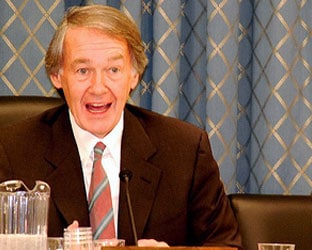A pair of Democratic Senators and California Democratic House Member Anna Eshoo have each reintroduced legislation in Congress they claim “would undo Trump-era” FCC rulemaking and ensure that public, educational, and government (PEG) channels have the resources they need to keep producing content for their viewers.
Senators Edward J. Markey (D-Mass.) and Tammy Baldwin (D-Wisc.), members of the Senate Commerce, Science, and Transportation Committee, and Eshoo, a senior member of the House Energy and Commerce Committee, on Thursday each reintroduced the Protecting Community Television Act in their respective houses of Congress.
What’s their concern? In 2019, the FCC, they assert, “allowed cable companies to put a price tag on in-kind contributions they provide to communities, including PEG channels. Under the rule, cable companies can then subtract the ascribed value from the franchising fees that they pay in order to operate. The FCC’s decision has forced local governments across the country to decide between supporting PEG programming and supporting other public services for schools, public safety buildings, and libraries in cable franchise agreements.”
According to Markey, community television is a service that “millions of Americans rely on to keep up with the news that matters most to them.”
He commented, “At a time when news and media have become more consolidated than ever before, we must work to uphold local access to public, education, and government channels for every household in our country.”
As Eshoo sees it, “The Trump FCC’s actions on cable franchise fees have hurt public, educational, and governmental television, and this harms communities. I’m proud to reintroduce the Protecting Community Television Act with Senators Markey and Baldwin, legislation that reverse these harmful agency actions and protect community television by ensuring local voices have the platform they deserve.”
A host of other Democrats in the Senate have expressed their support for the legislation.
Not one Republican has, nor are they expected to show support for the bill.





